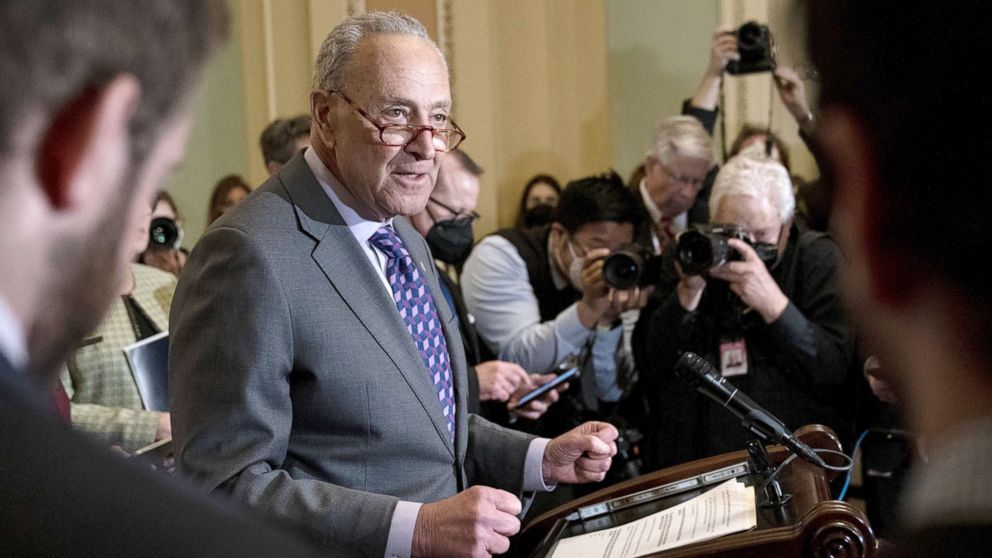Senate Republicans block bill that would codify Roe v. Wade abortion rights
In the wake of a bombshell leak last week of a Supreme Court draft opinion indicating the court's conservative majority could soon overturn Roe v. Wade, Senate Democrats on Wednesday forced a vote to advance a bill that would enshrine abortion rights into federal law.
The Women's Health Protection Act would codify the Roe v. Wade ruling while also banning requirements some states have put into place related to abortion care, such as waiting periods and mandatory doctor visits before the procedure. But without the 60 votes needed to overcome a GOP-led filibuster, the legislation failed in the Senate 49-51, sending Democrats scrambling for alternatives.
Democratic Sen. Joe Manchin of West Virginia broke from his party and joined every single Republican senator to vote against advancing the bill.
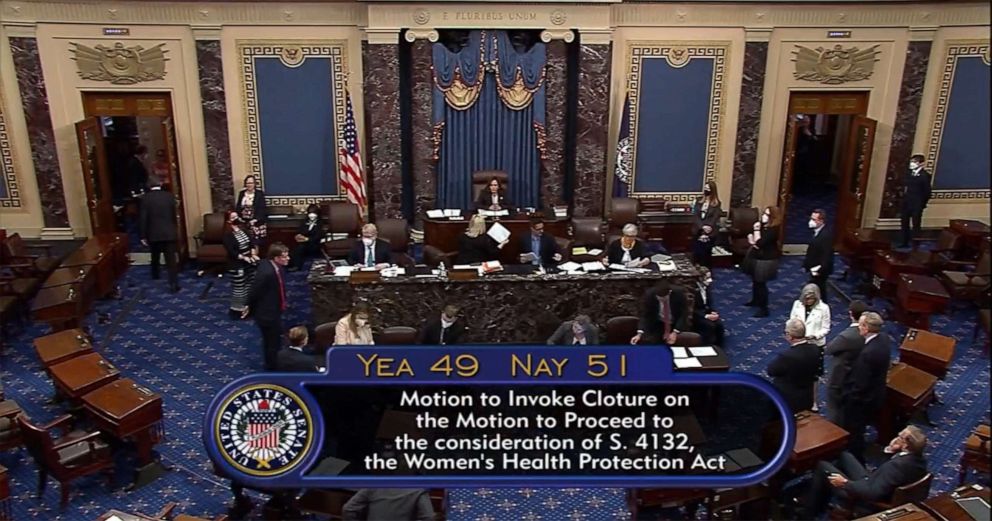
President Joe Biden condemned Senate Republicans for failing to act "at a time when women’s constitutional rights are under unprecedented attack -- and it runs counter to the will of the majority of American people."
"Republicans in Congress -- not one of whom voted for this bill -- have chosen to stand in the way of Americans’ rights to make the most personal decisions about their own bodies, families and lives," Biden said in a statement just after the vote. "To protect the right to choose, voters need to elect more pro-choice senators this November, and return a pro-choice majority to the House. If they do, Congress can pass this bill in January, and put it on my desk, so I can sign it into law."
Even without the full support of his caucus, Senate Majority Leader Chuck Schumer argued the vote was worth taking, to put Republicans on the record, calling it "one of the most consequential we will take in decades."
"All of us will have to answer for this vote for the rest of our time in public office," Schumer said in floor remarks Wednesday morning. "Before the day is over, every member of this body will make a choice stand with women to protect their freedoms or stand with MAGA Republicans to take our country into a dark and repressive future."
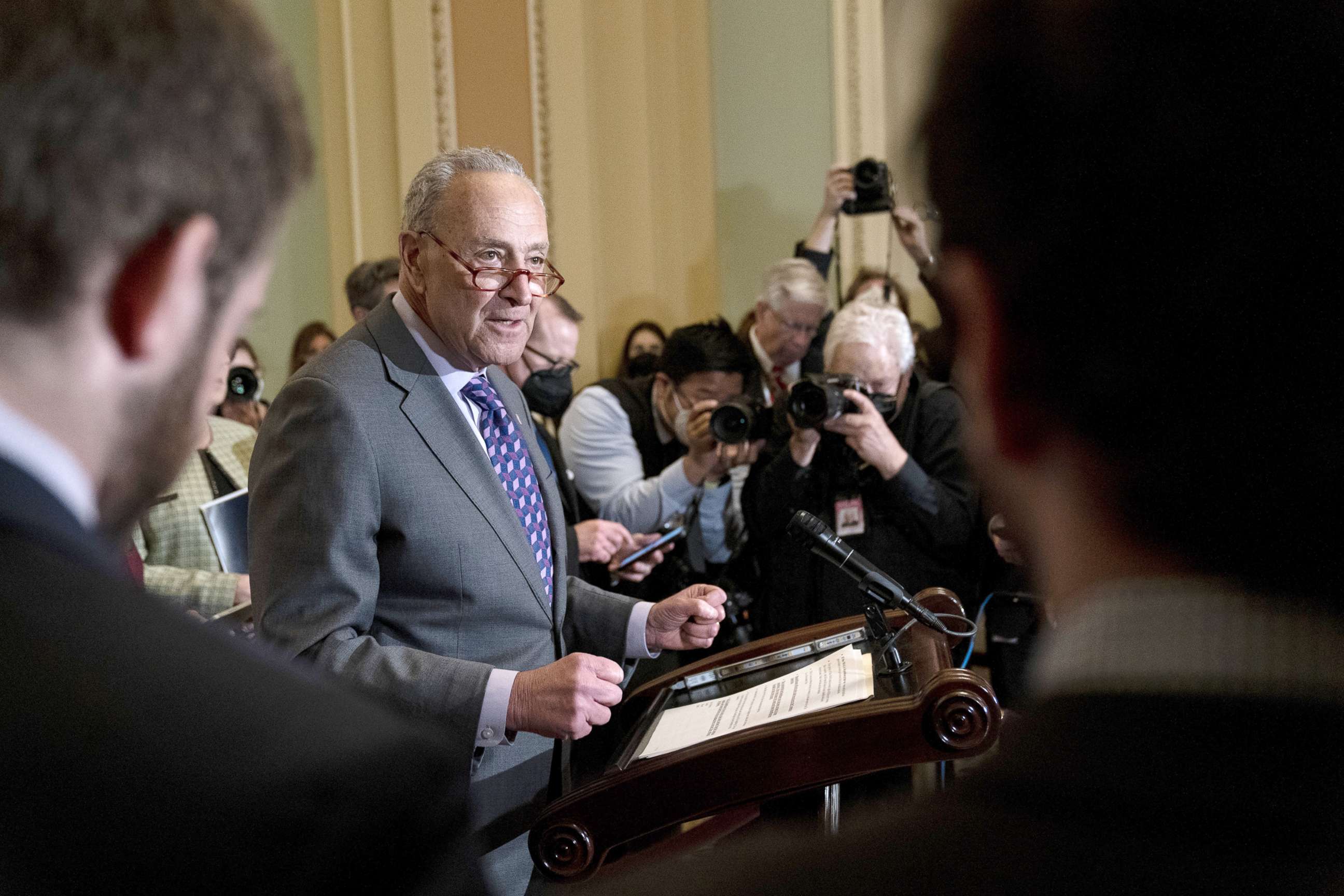
"This is a cruel repressive dangerous vision for our country, but it is precisely the future that MAGA Republicans are working towards," he added, portraying a nation without abortion access.
Vice President Harris presided as the afternoon vote began, not to break a tie on the bill, but because she has long fought to protect reproductive rights, the White House said.
"Sadly, the Senate failed to stand in defense of a woman's right to make decisions about her own body," she told reporters after calling the vote. "And let's be clear: The majority of the American people believe in defending a woman's right to choice, to decide what happens to her own body, and this vote clearly suggests that the Senate is not where the majority of Americans are on this issue.
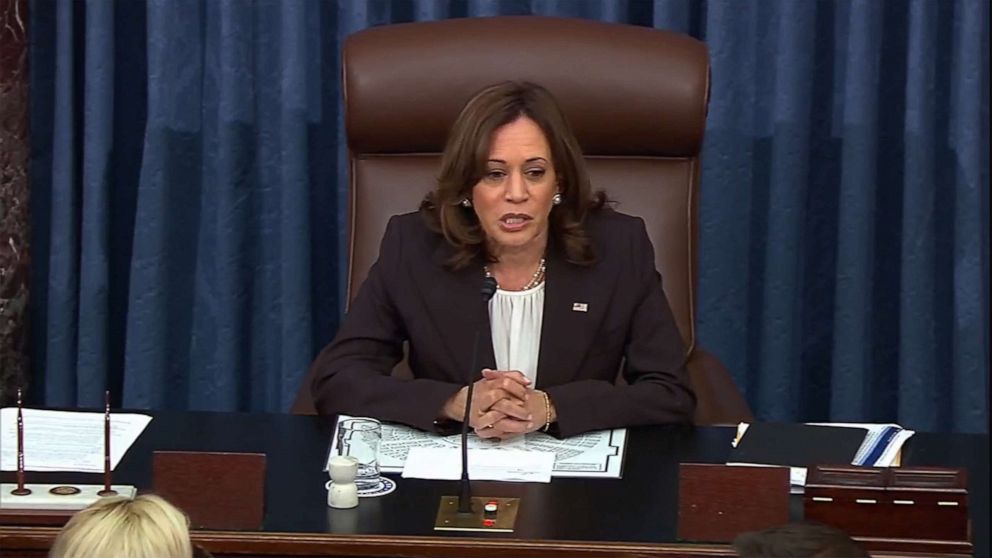
A recent ABC News/Washington Post poll found a majority of Americans support upholding Roe, a point Democrats are hitting on ahead of the midterm elections.
Schumer filed cloture on Monday on a motion to start debate on the Women's Health Protection Act, setting the bill up for a procedural roll call vote on Wednesday. The bill cleared the House last year but already failed once to pass through the upper chamber in February, when Schumer failed to get the entire Democratic caucus on board, in a 46-48 vote. Democrats currently control 50 seats in the Senate with Harris, as president of the Senate, serving as their tie-breaking vote -- but 60 votes are needed to end debate on a piece of legislation, under the filibuster rule.
Not only did Democrats lack the 60 votes needed to get past a GOP-led filibuster, but they lacked the full support of their caucus, since Manchin, who voted with Republicans to block the measure earlier this year, said earlier Wednesday he would, again, vote "no."
"I would vote for a Roe v. Wade codification if it was today. I was hopeful for that, but I found out yesterday in caucus that wasn't going to be," he told reporters.
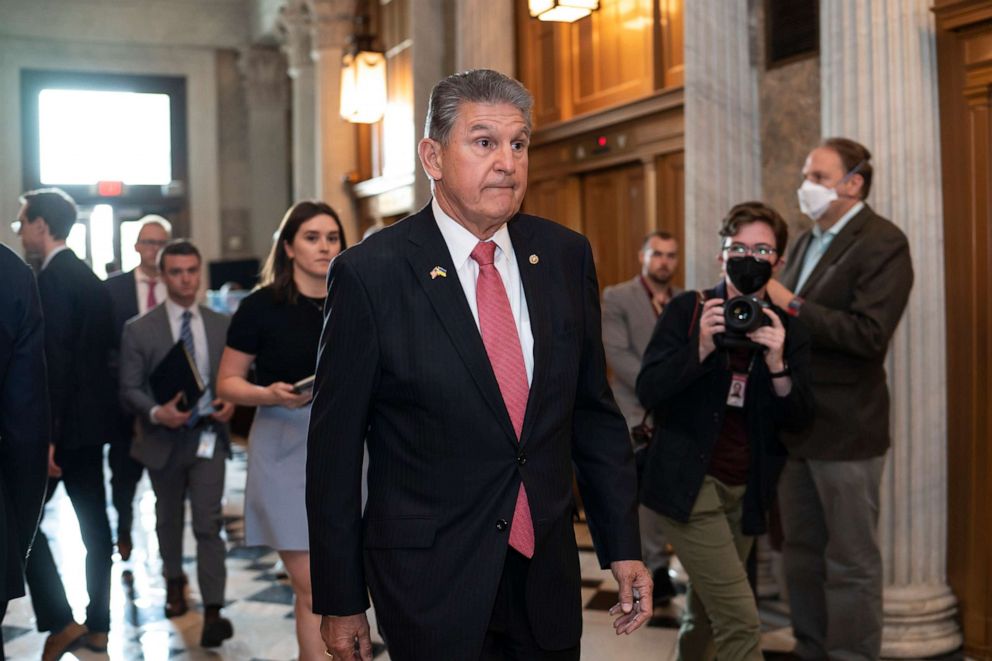
Republicans and Manchin have called the Women's Health Protection Act too broad, prompting Democrats to draft a modified version. Sens. Susan Collins of Maine and Lisa Murkowski of Alaska -- the sole Senate Republicans who support abortion rights -- told reporters this week the bill still goes too far for them and that they would be voting "no." For instance, the bill doesn't protect the right of Catholic hospitals to refuse to perform abortions, which Collins took issue with.
"After today’s vote fails, I plan to continue working with my colleagues on legislation to maintain -- not expand or restrict -- the current legal framework for abortion rights in this country," Collins said in a statement Wednesday.
She and Murkowski have their own proposal to codify Roe called the Reproductive Choice Act, which they say would prohibit states from imposing an "undue burden" on the ability of a woman to choose to terminate a pregnancy pre-viability but allow states to keep other restrictions in place. However, at least 17 abortion-rights groups this week said would not protect the right to abortion.
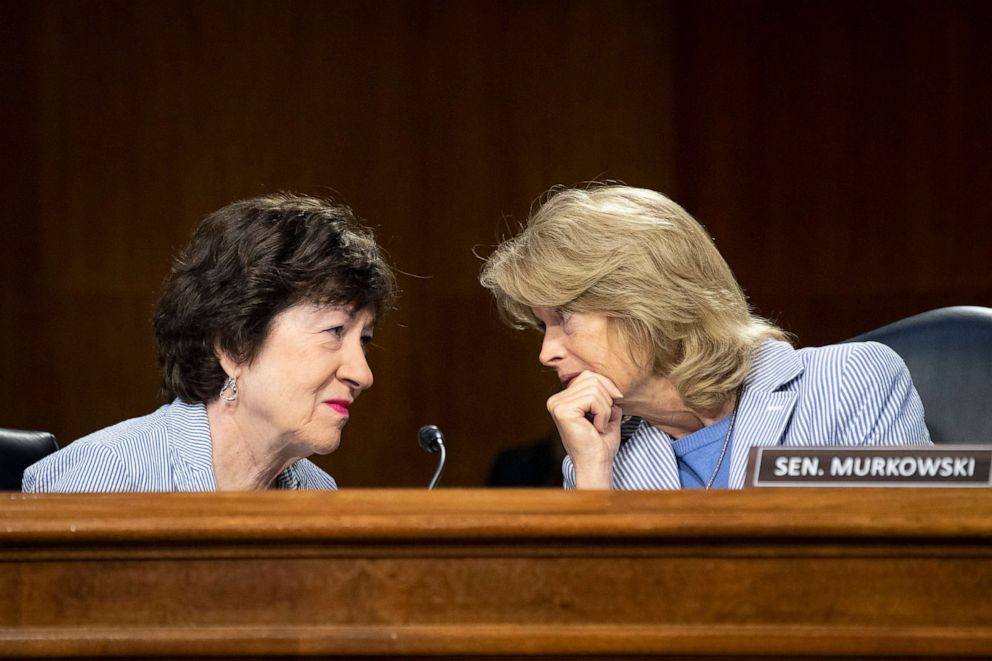
NARAL Pro-Choice America President Mini Timmaraju said their legislation, as written, would actually weaken protections found under current law.
"If these senators truly cared about safeguarding reproductive freedom in the face of an unprecedented assault from the Supreme Court, they could vote for the Women's Health Protection Act (WHPA), a bill that actually secures the right to abortion against medically unnecessary bans and restrictions," she said in a statement. "Instead, they're engaging in political theater and making misleading claims about what WHPA is and does."
Sen. Tim Kaine, D-Va., told ABC News' Trish Turner on Tuesday he's been negotiating with Collins since last week to try to change the Reproductive Choice Act to find a way in federal law to protect access to abortion and contraception.
"We would like to codify the set of holdings beginning with Griswold up through the Whole Women's Health case," Kaine said of the bipartisan effort, referring to the Supreme Court case Griswold v. Connecticut upholding a constitutional marital right of privacy. But that measure, again, would need 60 votes to clear a GOP filibuster.

Anticipating the Senate vote, abortion-rights activists spilled over from outside the Supreme Court to the steps of the U.S. Capitol on Tuesday night, calling on lawmakers to protect abortion access nationwide.
"There'll be no more hiding. There'll be no more distracting. No more obfuscating where every member in this chamber stands," Schumer said Tuesday on the Senate floor. "Senate Republicans will face a choice. Either vote to protect the rights of women to exercise freedom over their own bodies, or stand with the Supreme Court as 50 years of women's rights are reduced to rubble before our very eyes."
ABC News' Allison Pecorin contributed to this report.
